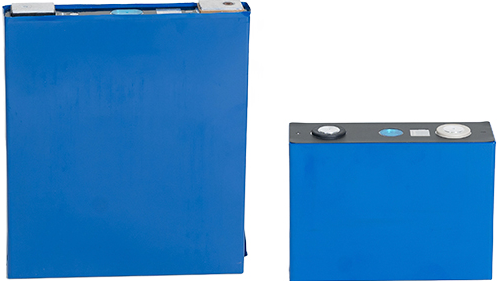48V lithium-ion batteries on the market are generally speaking in the single battery about 3.7v, but very often the operating voltage range is slightly larger there is obviously not enough voltage problem. This time to improve the battery voltage of the battery pack and modular batteries also came, and in the many high-voltage batteries, 48v lithium-ion batteries have been commonly used. 48V lithium-ion batteries and lead-acid batteries, compared with the small size, light weight, temperature adaptability, high charge and discharge efficiency, safety and stability, long service life, energy saving and environmental protection, etc. 48V lithium-ion batteries can be divided into ternary lithium batteries, lithium-ion batteries, lithium-ion batteries, lithium-ion batteries, lithium-ion batteries, lithium-ion batteries, and lithium-ion batteries. Can be divided into ternary lithium batteries, lithium iron phosphate batteries, lithium titanate batteries.

48V lithium-ion battery is a combination of multiple lithium cells in series and parallel, because if the manufacture of a single cell is a 48v lithium battery, the battery efficiency and life is not very good. 48V lithium-ion battery price estimation formula individual lithium battery cell price x (3.6~3.7V * n = 48v) * m (number of cells in parallel) + protection plate price + shell Price + price of auxiliary materials in general, the voltage of a single lithium cell is 3.6 ~ 3.7V, its price will vary because of the different materials and processes used by lithium battery manufacturers.
At present, the energy density of lithium batteries is generally 200~260wh / g, lead-acid is generally 50~70wh / g, the weight energy density of lithium batteries for the lead-acid 3~5 times, which means that under the same weight, lithium batteries capacity than lead-acid batteries are three to five times stronger, so lithium batteries have an absolute advantage in energy storage. In the current most popular lithium battery materials are lithium ternary and lithium iron. For example, lithium ternary batteries usually have 1000 cycles, lithium iron phosphate batteries have more than 2000 cycles, and lead-acid batteries usually have 300-350 cycles. This means then that lithium batteries last about 3-6 times longer than lead acid batteries. Looking at most common batteries, the price cost of lead-acid batteries is currently cheaper than lithium batteries, which are about three times as expensive. However, by analyzing the lifespan, lithium batteries have a longer lifespan if the same cost is used.
| type | Battery Specifications | Cell type | Combination | sizes(mm) | weights(Kg) |
lithium iron phosphate (Li-FePO4) | 48v 10ah | 26650/3.2V/10Ah | 26650-15S3P | 245×145×90 | 5.0 |
| 48v 14ah | 26650/3.2V/3.5Ah | 26650-15S4P | 290×175×75 | 5.5 | |
| 48v 20ah | LA148F20C/3.2V/20Ah | LA148F20C-15S1P | 470×350×90 | 16.0 | |
| 48v 25ah | 26650/3.2V/3200mAh | 26650-15S8P | 300×250×150 | 16.0 | |
| 48v 28ah | 26650/3.2V/3.5Ah | 26650-15S8P | 530×235×133 | 16.0 | |
| 48v 40ah | 26650/3.2V/3.3Ah | 26650-15S12P | 420×265×140 | 35.0 | |
| 48v 50ah | 26650/3.2V/3.2Ah | 26650-15S16P | 451×415×133 | 30.0 | |
| 48v 100ah | 26650/3.2V/3.3Ah | 26650-15S34P | 620×325×240 | 55.0 | |
| triples | 48v 12ah | 18650/3.6V/3.5Ah | 18650-13S3P | 160×140×65 | 2.0 |
| 48v 60ah | 18650/3.6V/3.35Ah | 18650-13S18P | 300×270×155 | 15.0 | |
| 48v 80ah | 18650/3.6V/3.35Ah | 18650-13S24P | 400×400×100 | 20.0 |
From the automobile on the application of 48V lithium batteries, 48V lithium-ion battery range with the capacity of the battery itself (Ah) and the motor power of the electric car (W) related to the national standard of electric bicycles on the market now generally use 48V 12Ah lithium batteries and 350W motors, along with the development of battery technology, their theoretical range of up to 50km, the actual use of the range is still based on the weight of passengers and the weight of the carrier to determine the. 48V lithium-ion battery full power how many kilometers depends on factors such as battery capacity, motor power, load capacity. How many kilometers can a 48V lithium-ion battery run on a full charge depends on the battery capacity, motor power, and weight. Generally speaking, 48V 12Ah, 350w lithium-ion battery can run 50km, 48V 20Ah can run 70km, and 72V 22Ah lithium-ion battery can run 90km.